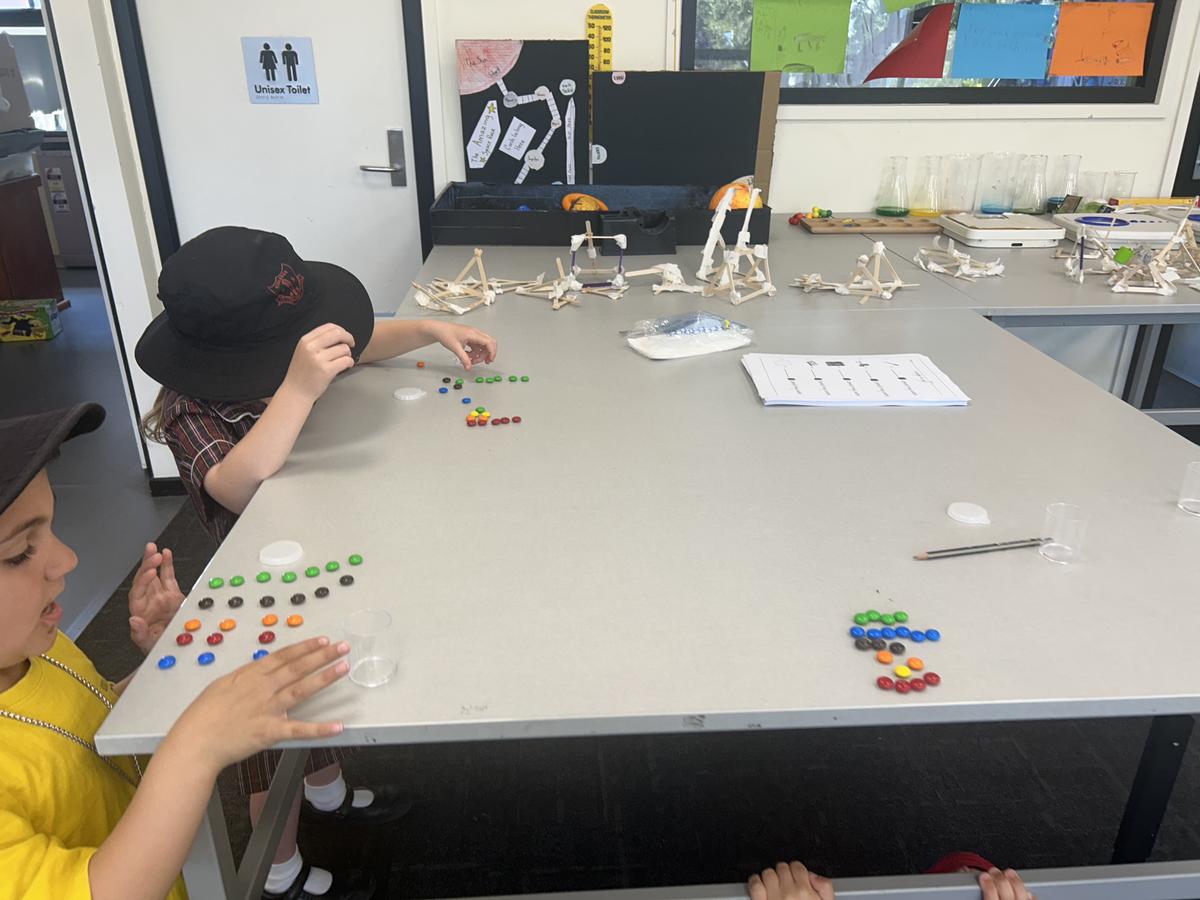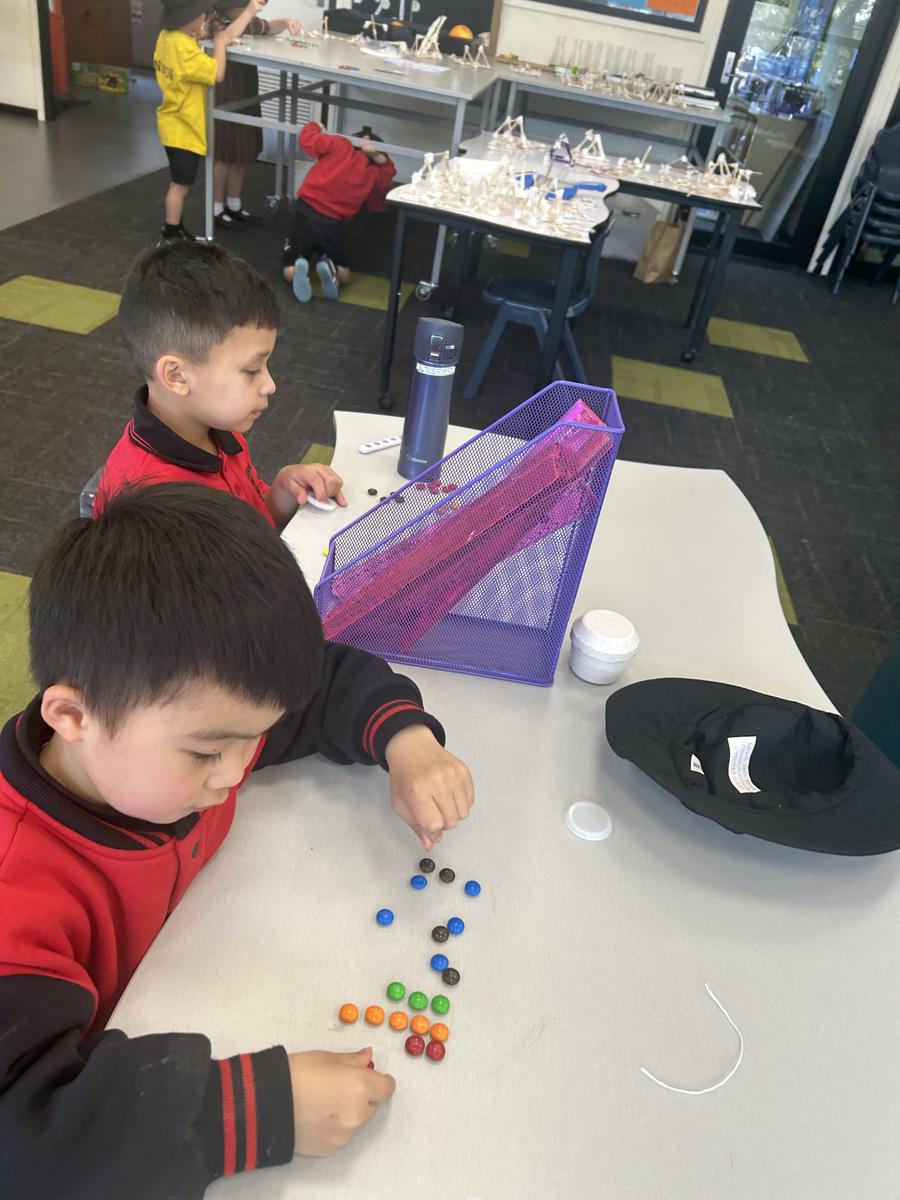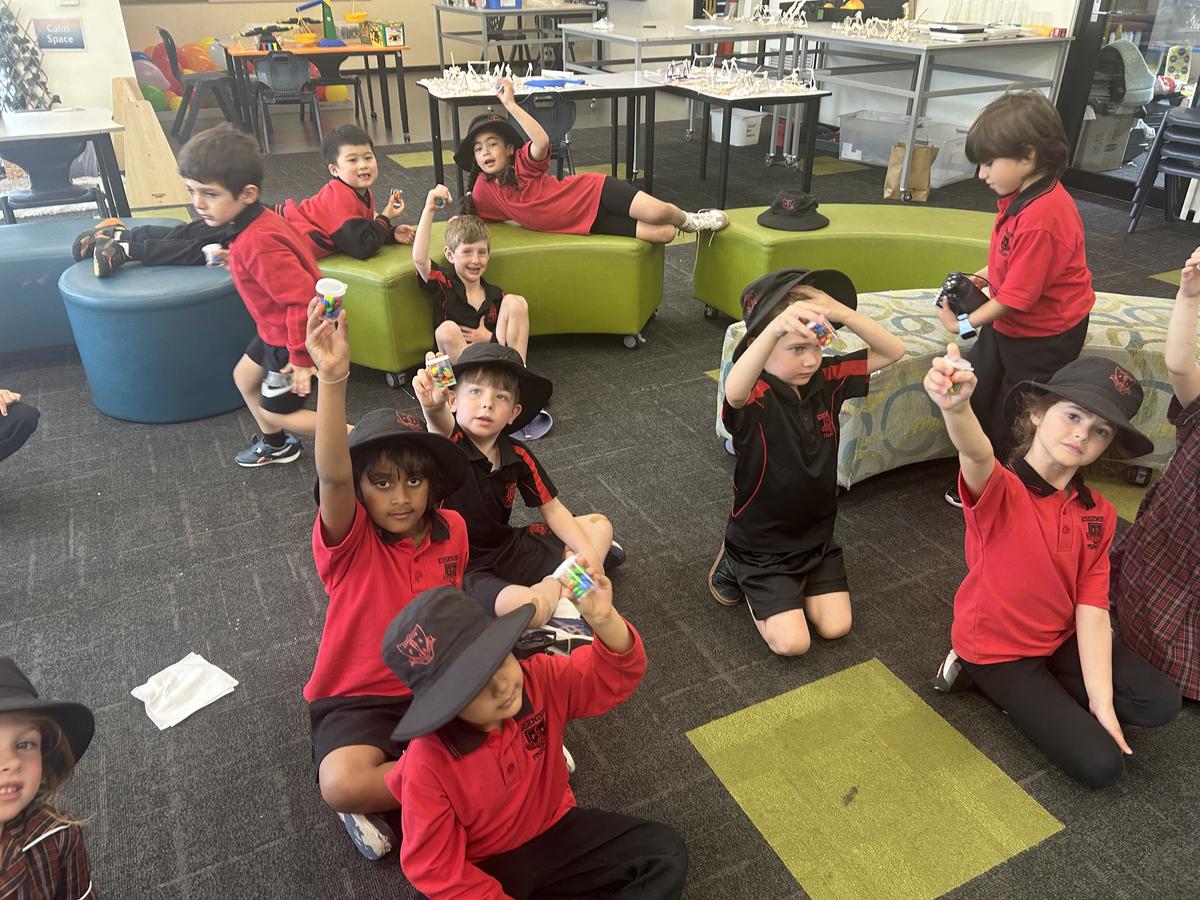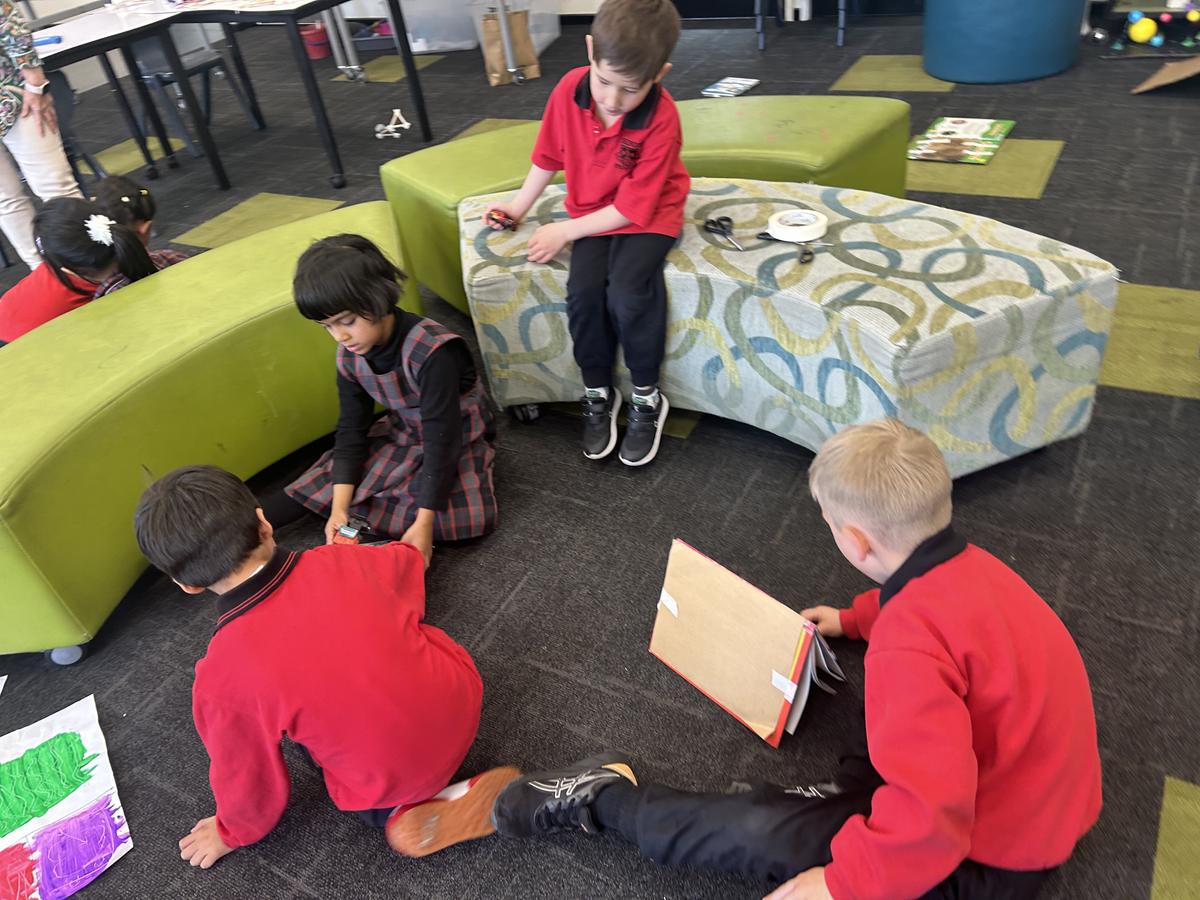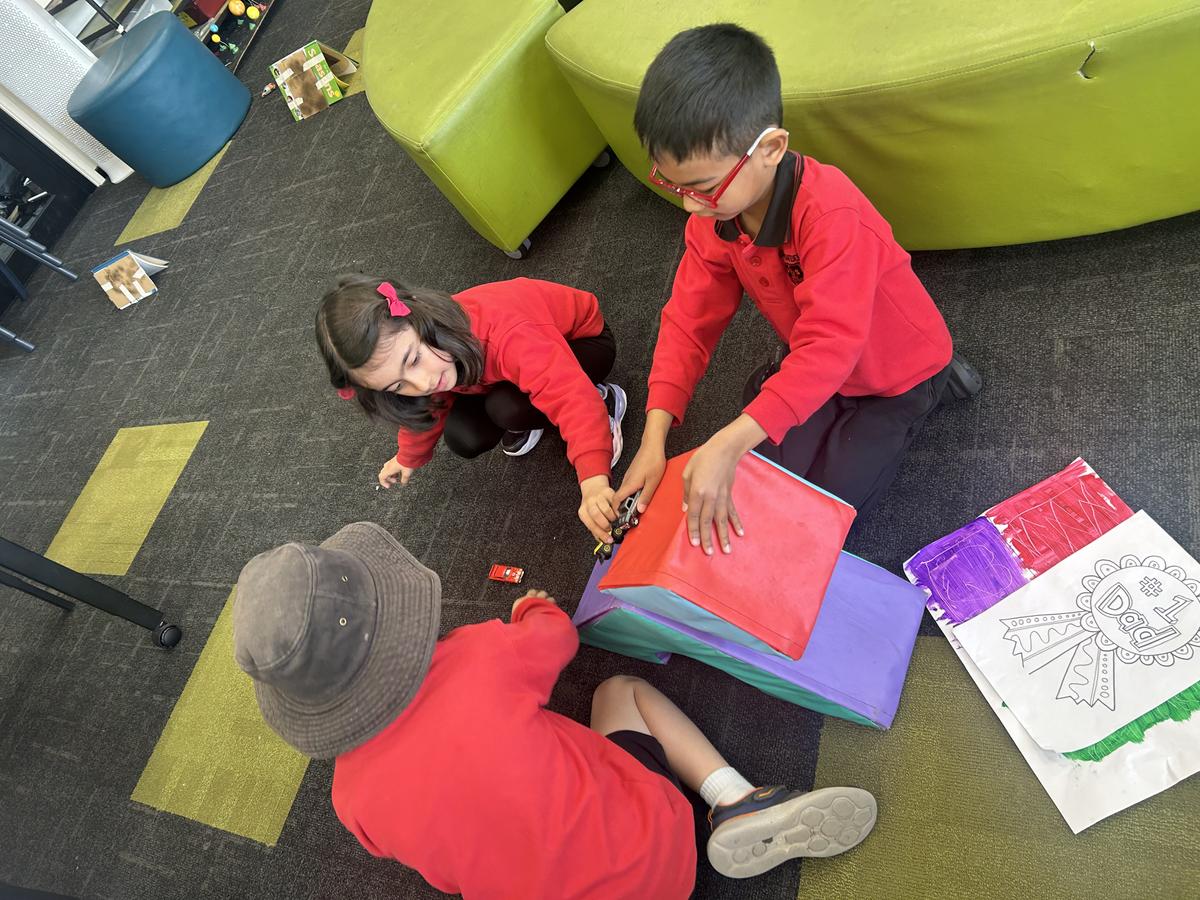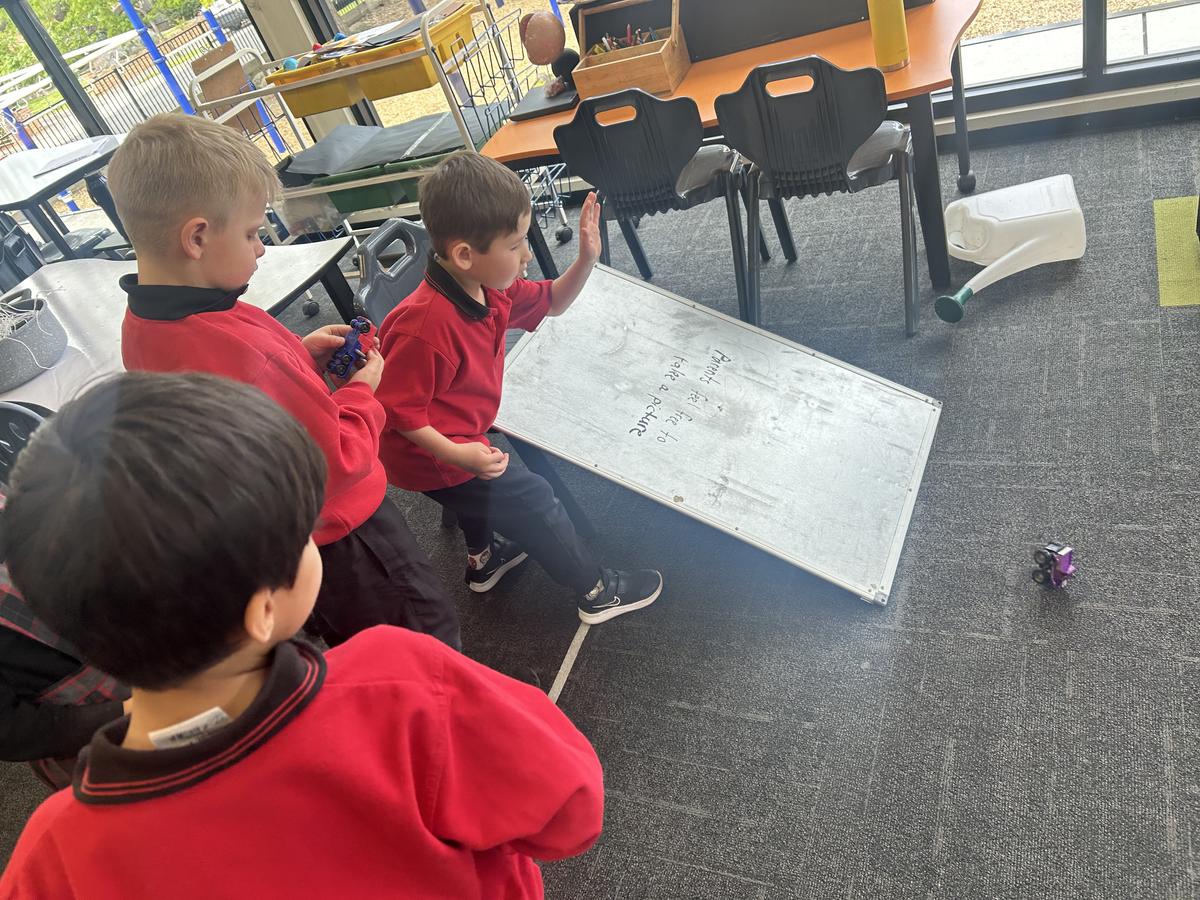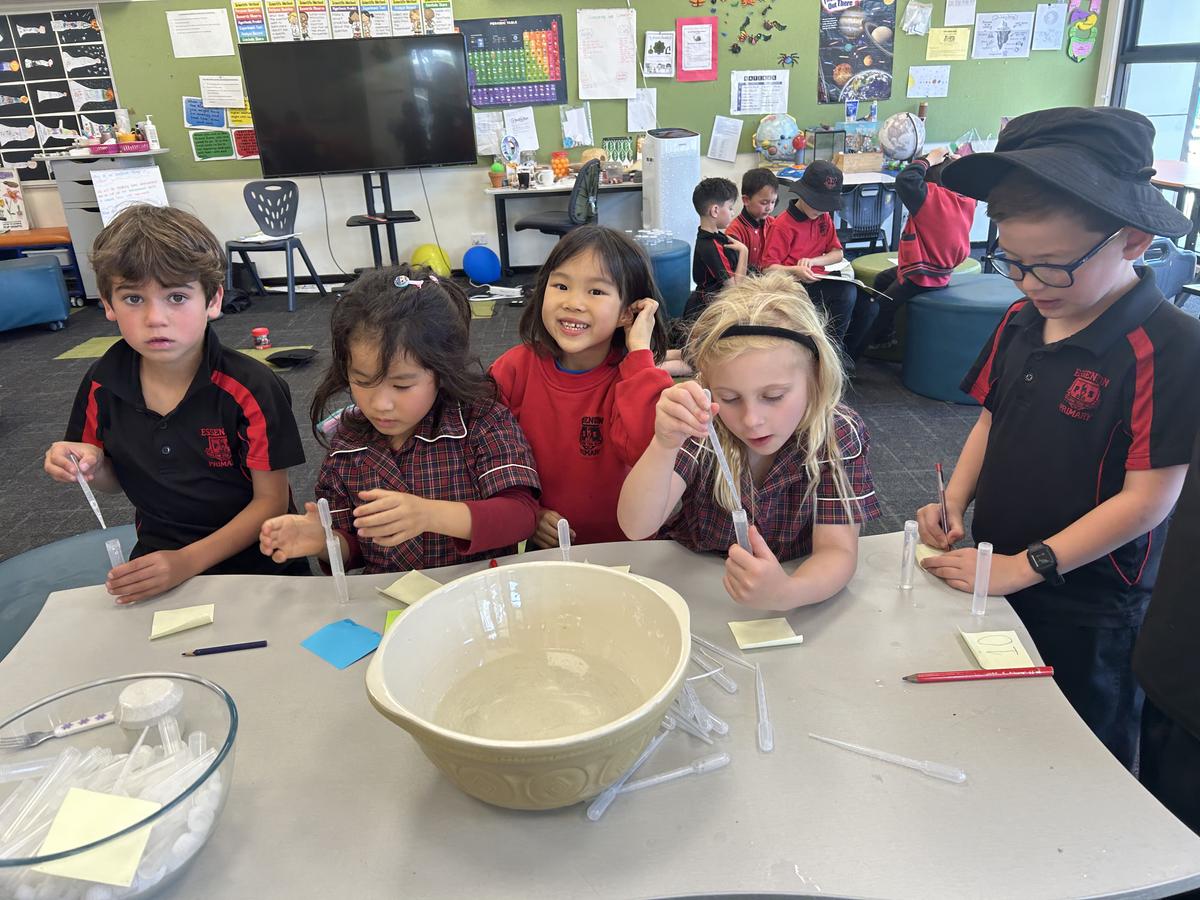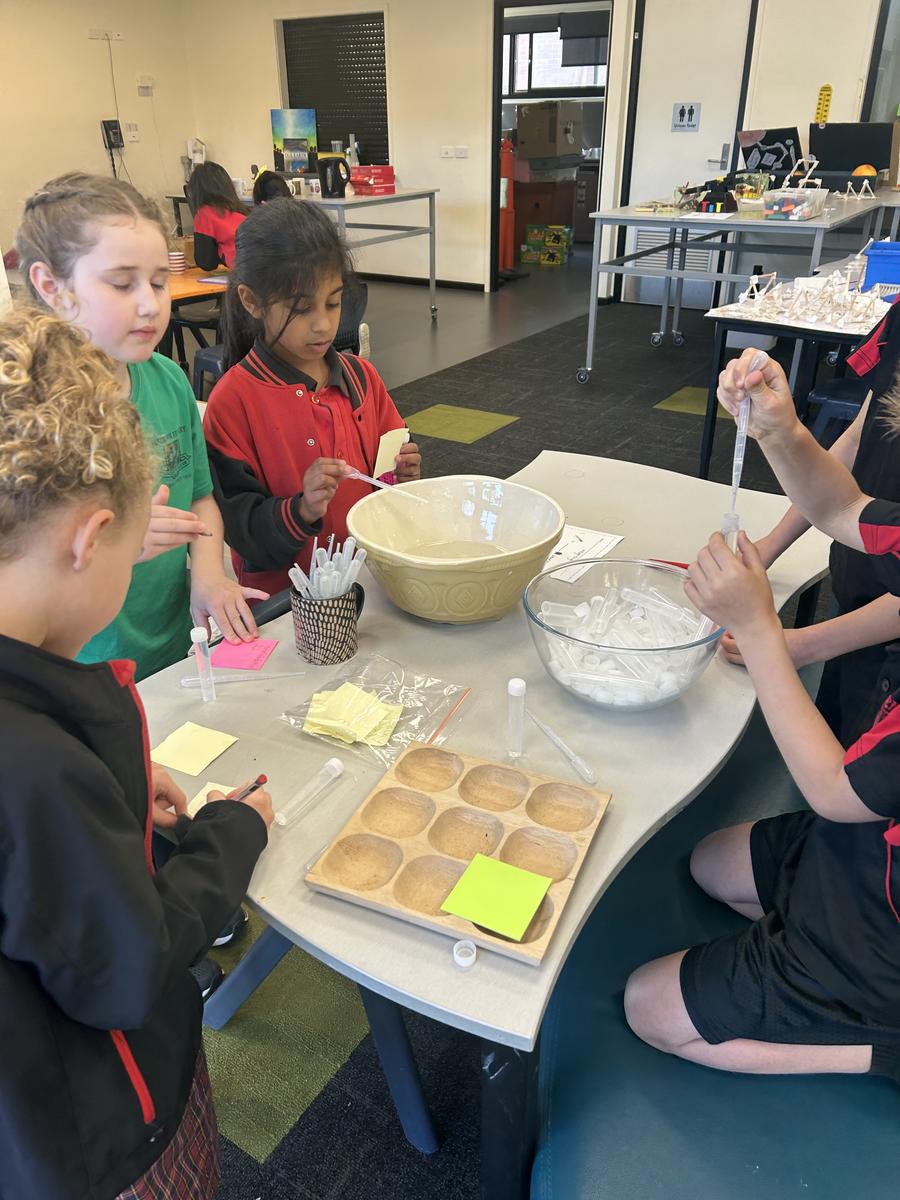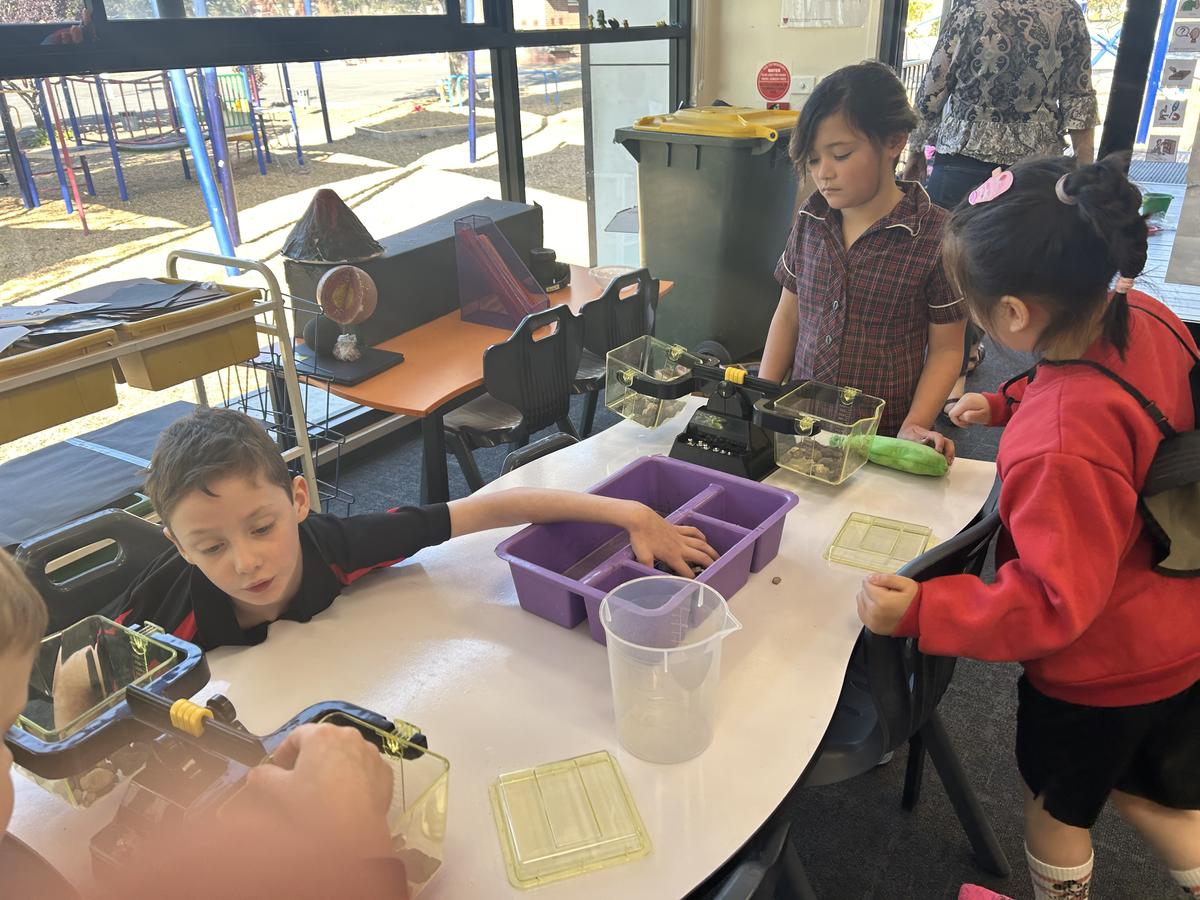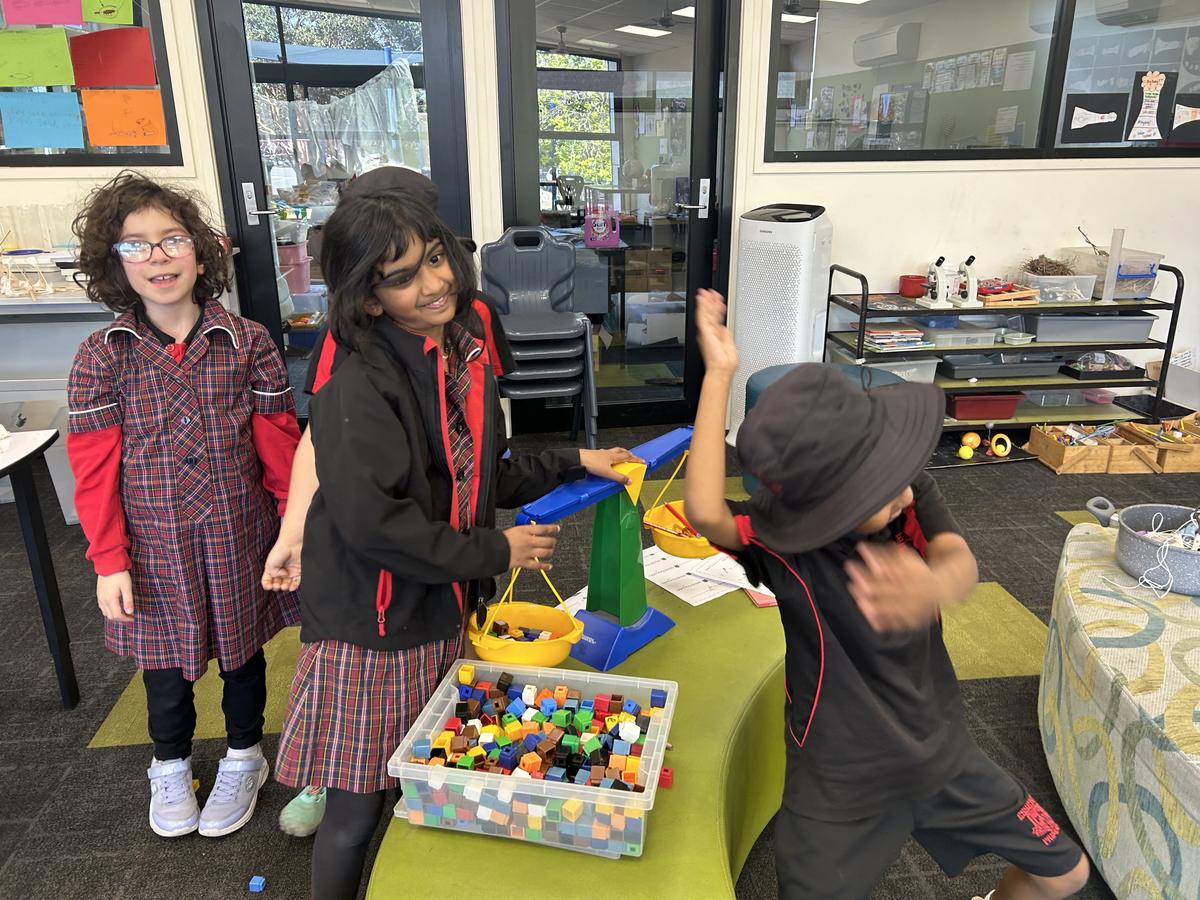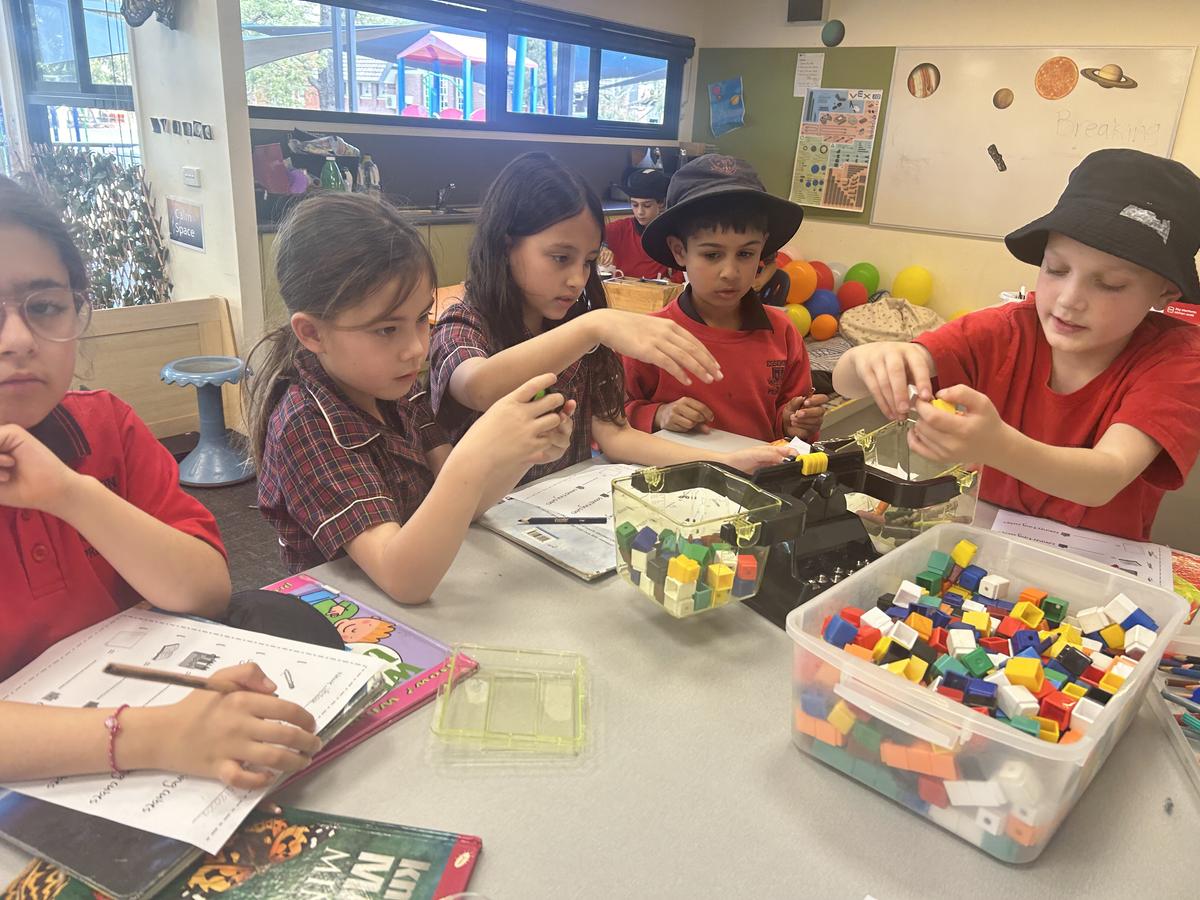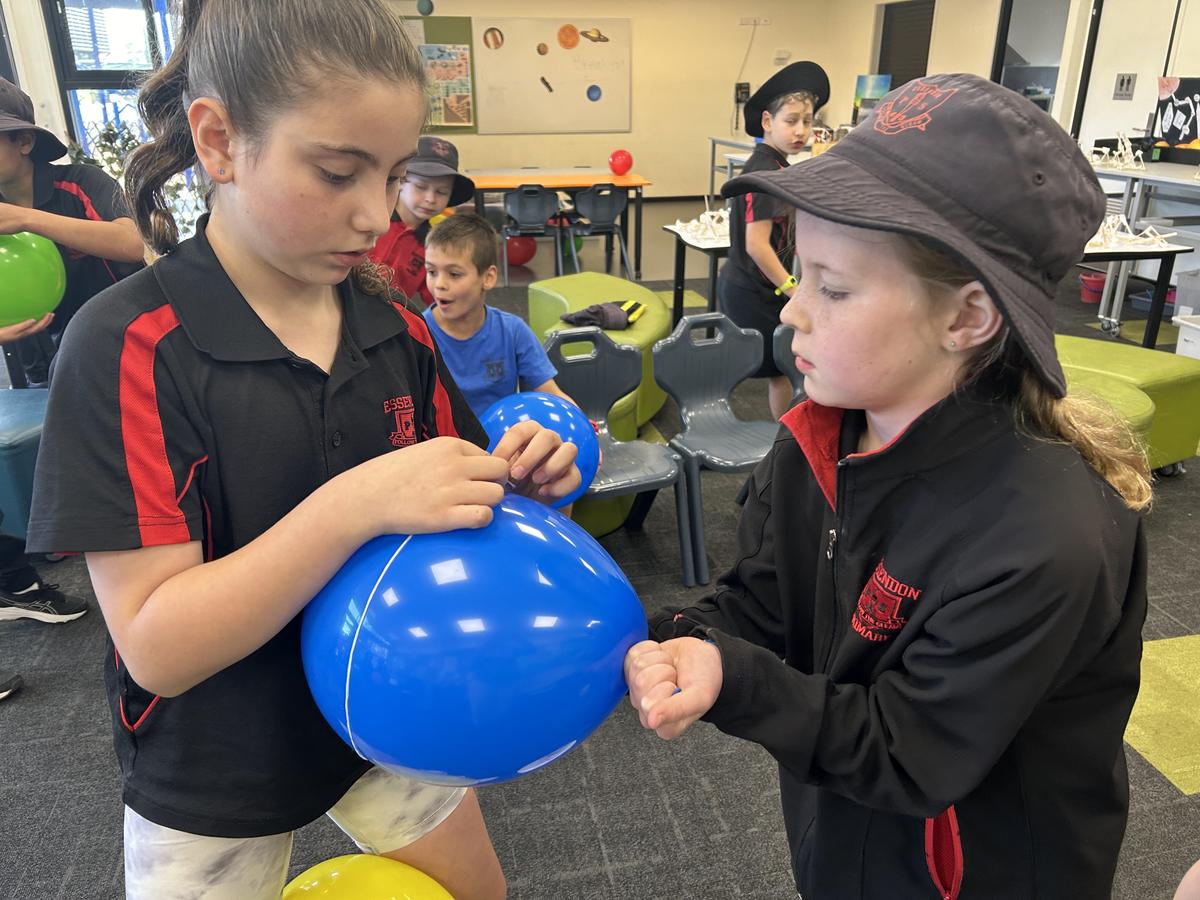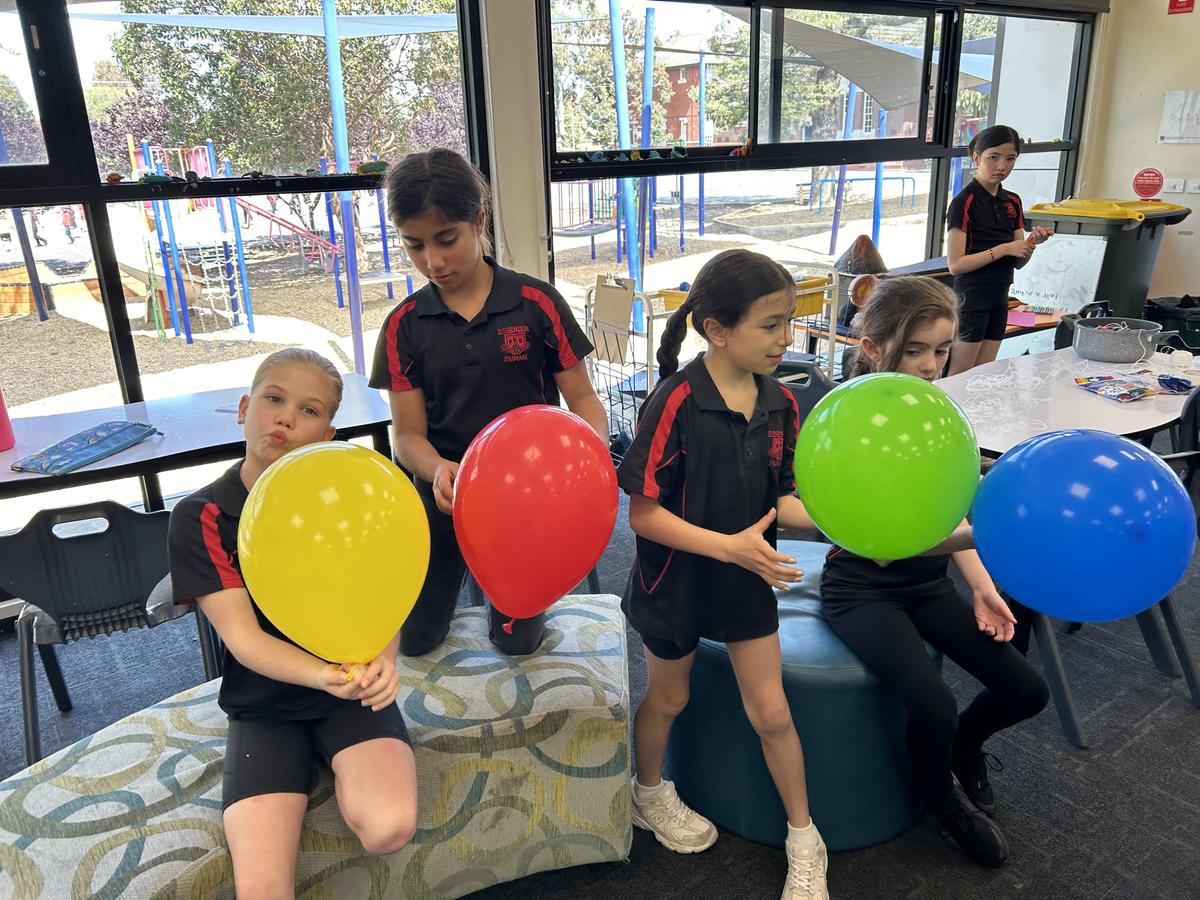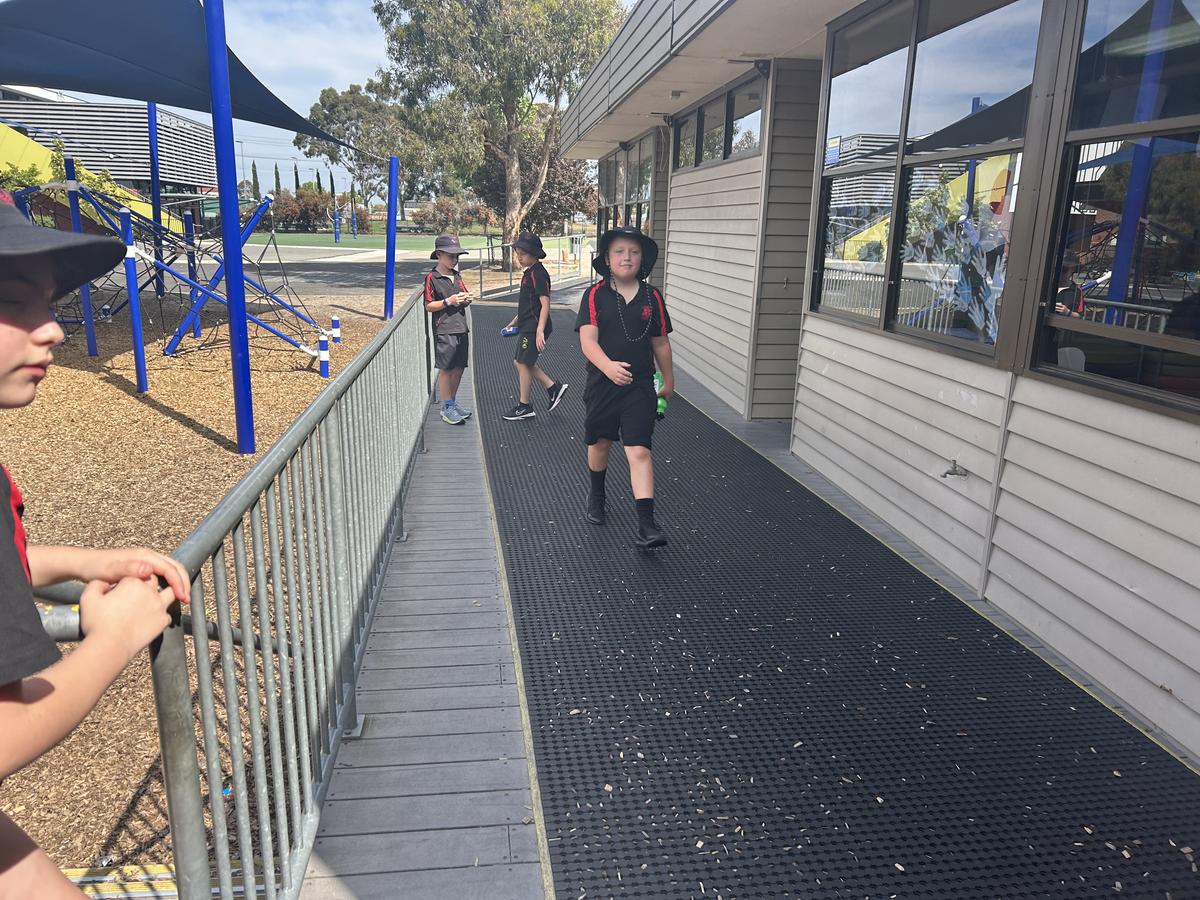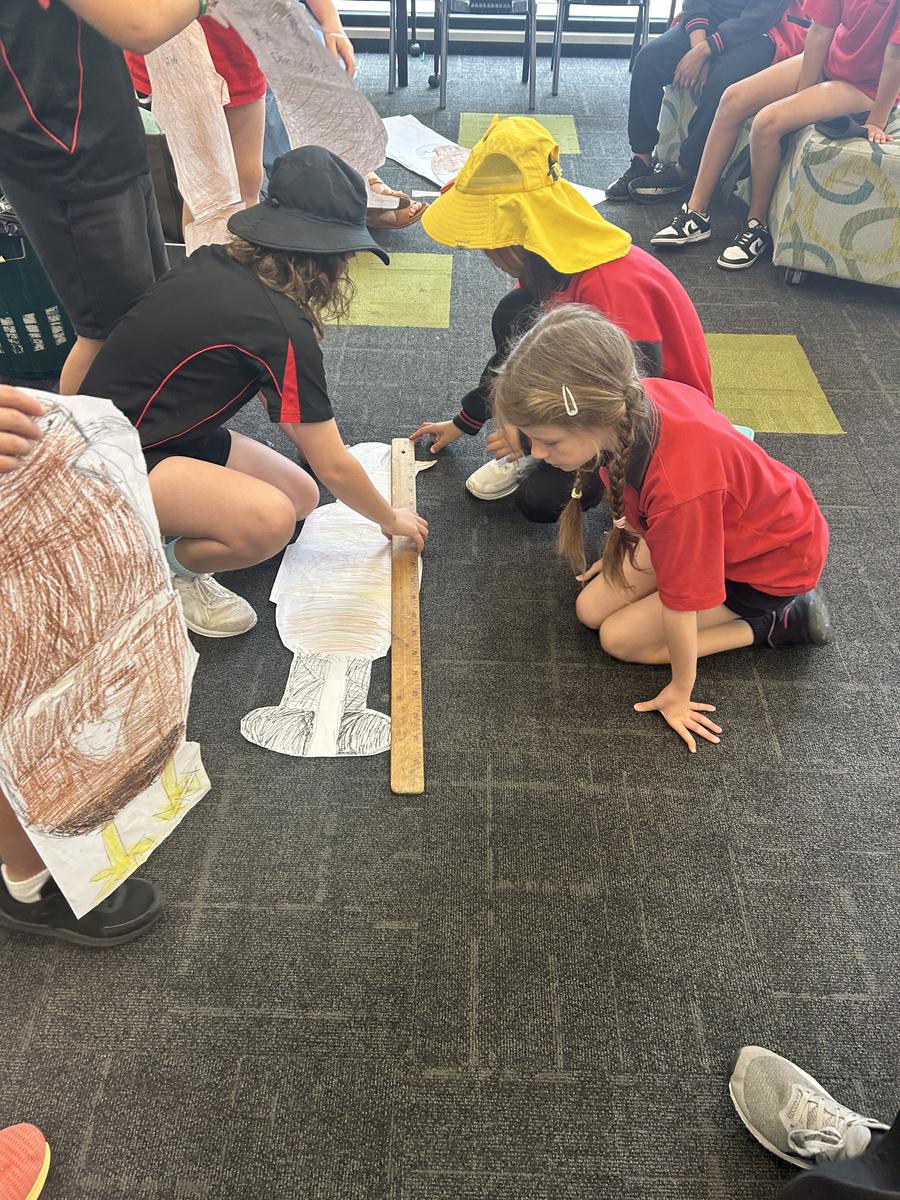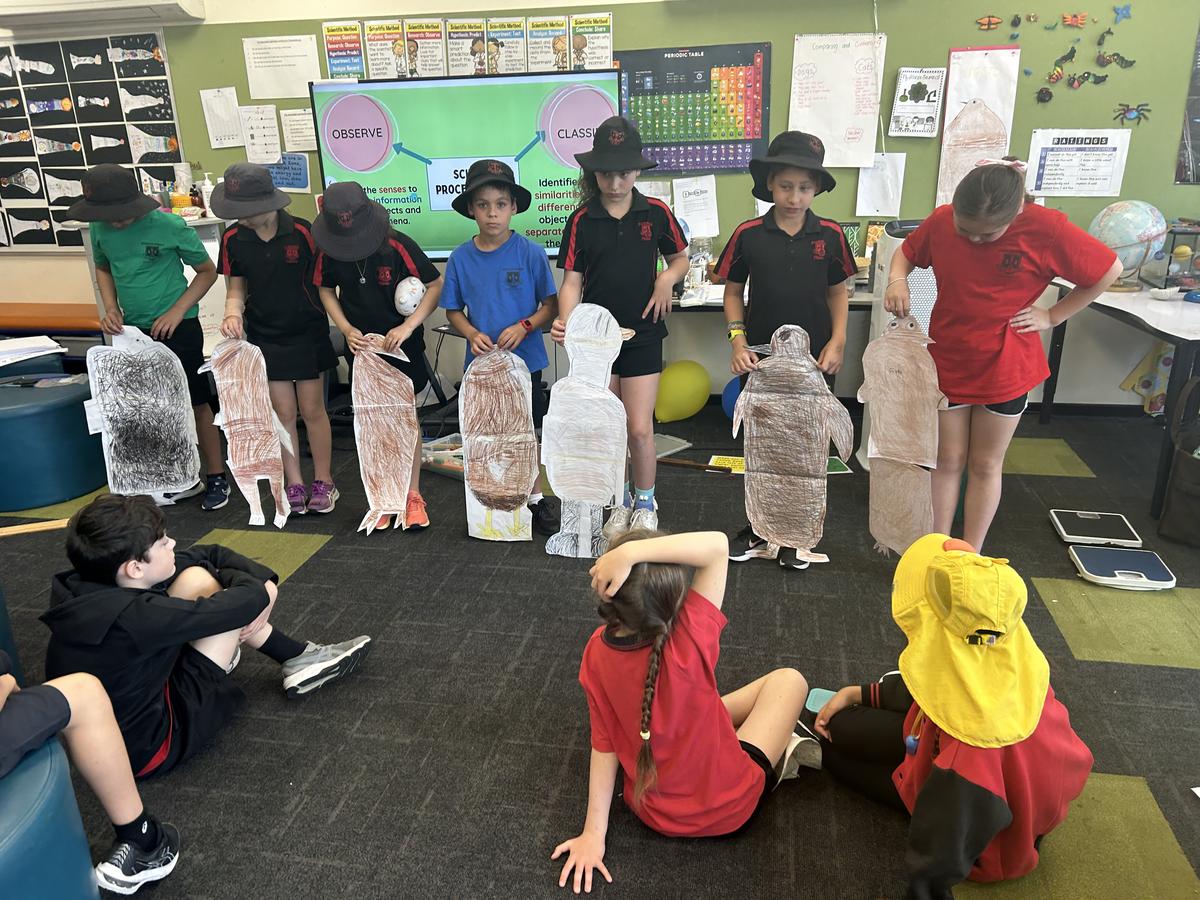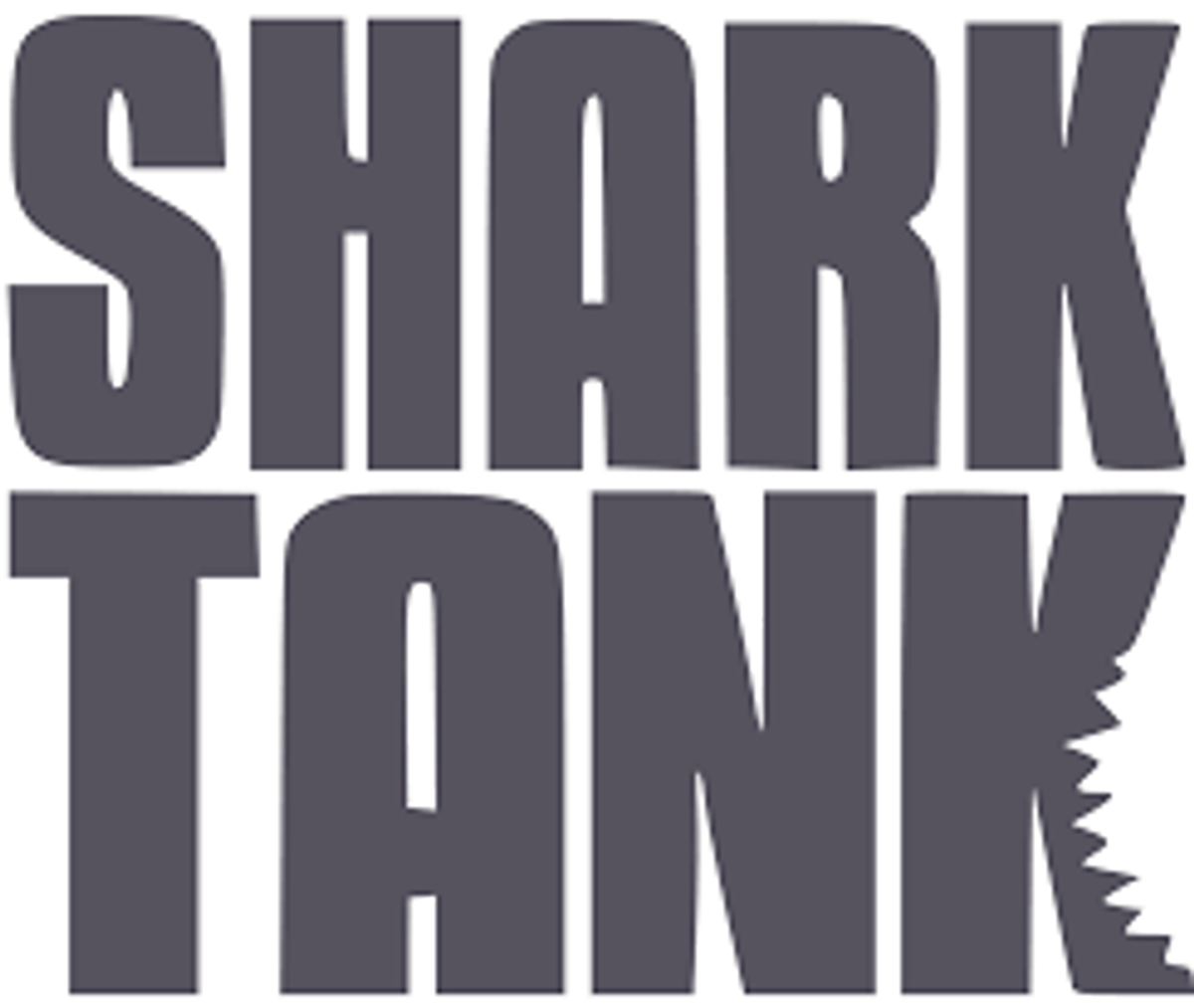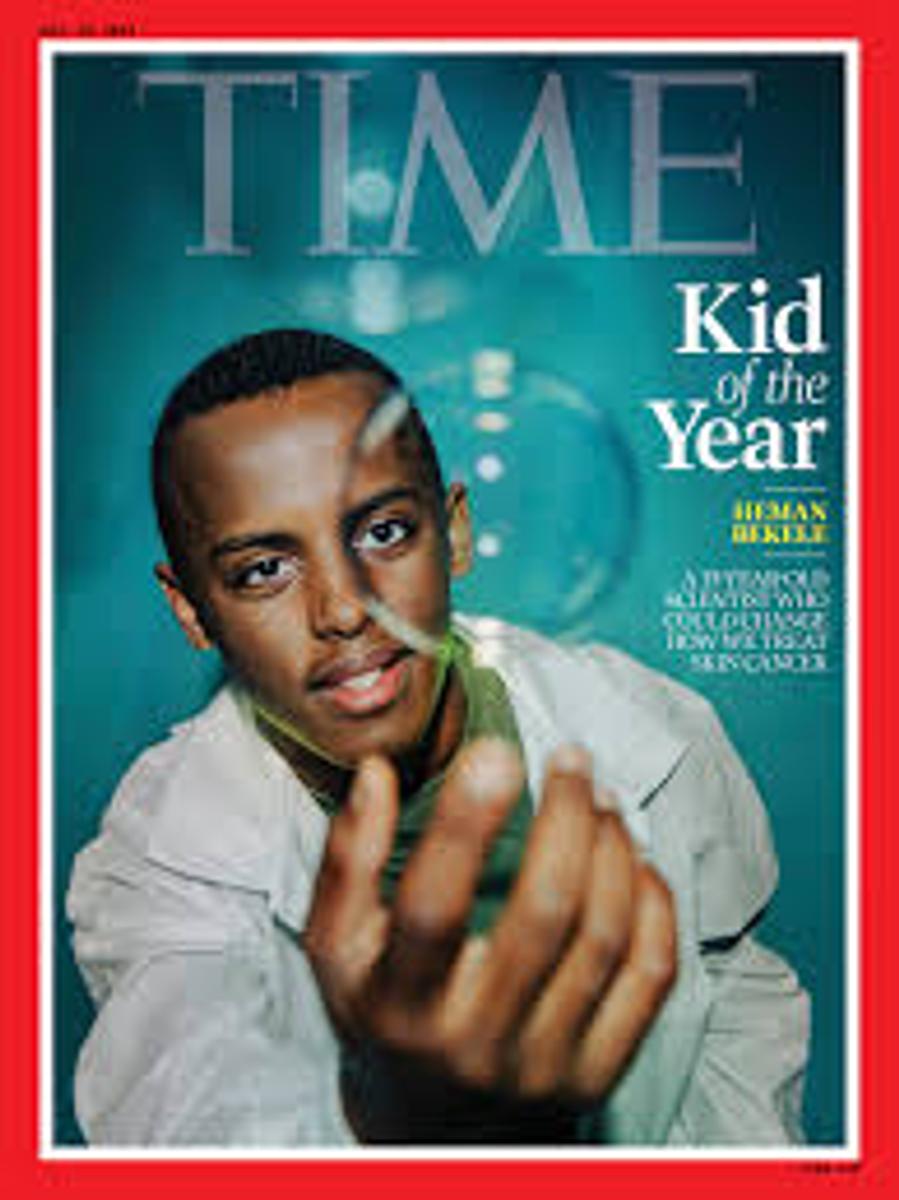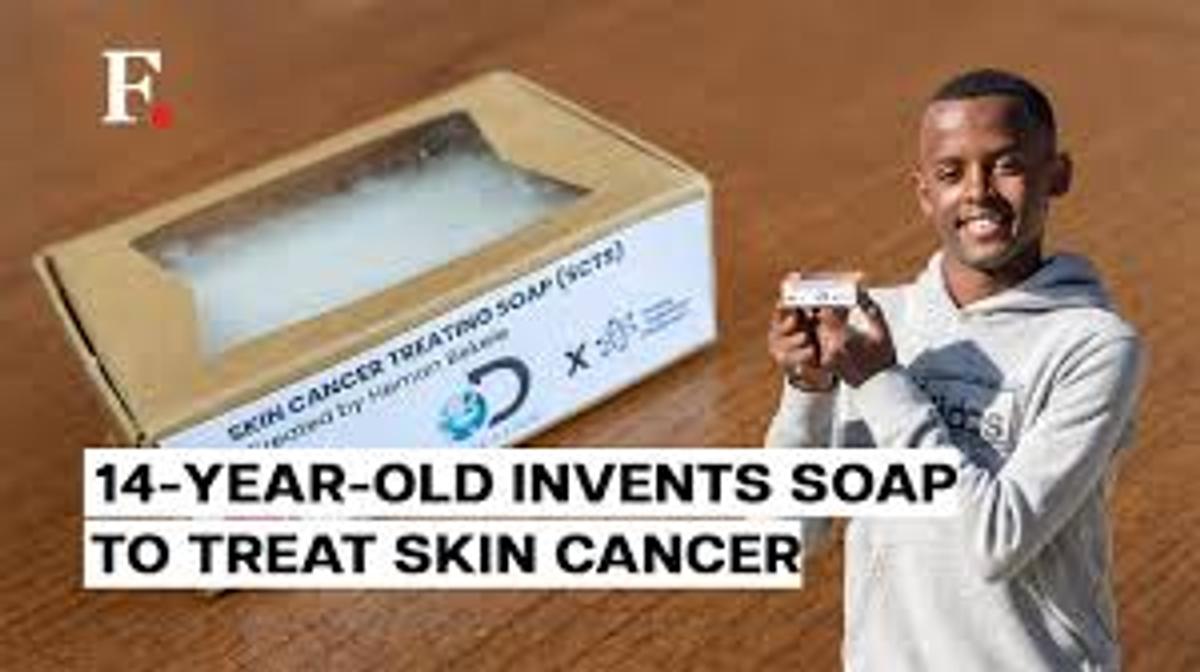Science

Preps
We have been comparing observations and predictions with each other. The Preps set up stations to make and test our predictions. In the first activity we had to predict how far a car would roll down different types of ramps. The ramps were made of cardboard, metal, a fluffy piece of fabric and sandpaper. The Preps collected the data and together we shared and compared our results to see if our predictions were correct.
During the next activity, we predicted how many of each colour would be in a pack of M&M's. We made our predictions and then compared them with each other. We tested our predictions to see if they were correct. Each student received a collection of M&M's from the packet and sorted out the different colours. We collectively tallied the results together and compared them.
Grades 1 & 2
We are using informal measurements in the collection and recording of observations to help us record and process scientific data. Students are participating in our 'Weigh to Go' measurement stations and recording their observations using different measurement tools. The question we asked was "How can we be sure that what we are measuring is actually right?"
Students tried some measurement tools and stations to see if we can use them effectively to collect scientific results. The stations were the following: (a) Measure the temperature of hot water with thermometers. (b) Capacity - Test tubes and measuring using pipettes of water required to fill up the test tube. (c) Balance Scale Station - Compare the weight of different sized rocks and rock collections. (d) Balance Scale Station - Compare and weigh collections of Unifix cubes with different items such as groups of pencils, collections of scissors, crayons, books and paper.
Grades 3 &4
Our focus was on using formal measurements in the collection and recording of observations. We discussed why observation and classifying skills are important science process skills but measurement skills are especially important. We talked about what a day would look like without measurement. In a world without measurement there would be no modern medicine, healthcare, surgery etc and in a measureless world there would be no science.
During our science stations we confirmed that observations are not enough to collect some scientific data.
We used our measurement tools to compare results for the following. (a) Comparing the sizes or two comparable balloons - Are they the same size or not? We measured the circumference of each balloon with string and checked the length of the string with the ruler. (b) Measuring our steps and using a calculator to calculate our stride length. We compared the distance we walked, the steps taken and used the calculator to work out our stride length. (c) We learned about Pesto the penguin and measured his height which helped us draw a model of Pesto. He is 90 cm tall and weighs 23.5kgs.
Grades 5 & 6
Students have been focusing on Science as a Human Endeavour and have been looking at the latest scientific discoveries in 2024 and comparing them with historical discoveries over the last 600 years up until the 20th Century. We reviewed the achievements of different scientists and the advances that have been made in the 21st Century such as the discovery of The Big Ring and The Giant Arc in the universe. New inventions that feed livestock using food waste and batteries of the future (Recyclable Water Batteries). We were inspired by Time Magazine's 2024 Kid of the Year who invested soap that treats skin cancer. What a legend, Heman Bekele!
This inspired us to create shark tank pitches and scenarios to showcase new scientific discoveries. Students have been very busy perfecting their pitches to present them in our very own Shark Tank session at school. We have some brilliant ideas such as infinite tree seeds, healing perfumes, a cream for snake bites that replaces anti-venom, food that doesn't require refrigeration, and nano-particle technology. They have been fine tuning their digital prototypes ready for their presentations where they will be competing with other students.
Grades 3 & 4
Grades 5 & 6

